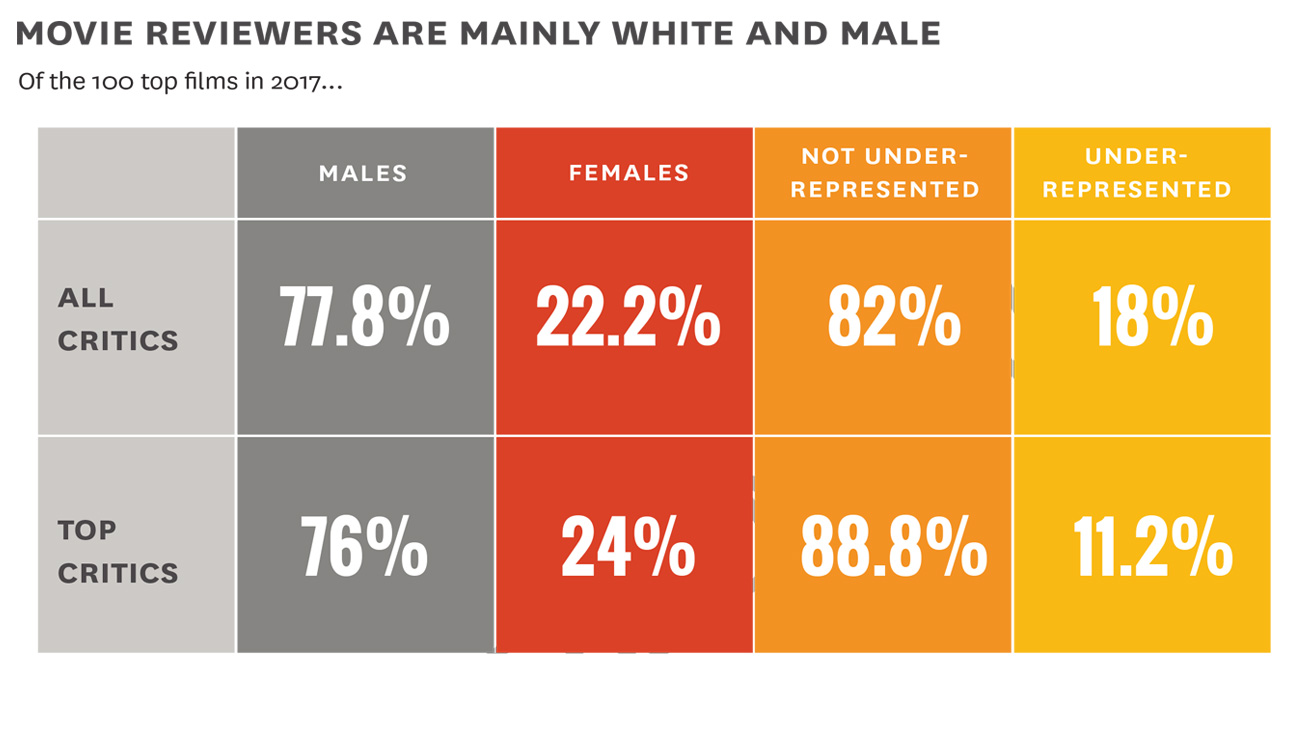
The film and TV industry has a serious diversity problem and part of that problem is the lack of diversity in critics and writers. It’s hard for Hollywood and mainstream media to broaden their artistic potential if the critics are the same ole, same ole critics from yesteryear that have not even evolved their own taste of art and entertainment in pop culture. Mainstream media hauls ass on hiring more diverse writers and critics and only want to hire us for contract work when a famous Black person dies or it’s Black History Month and even then that is a big maybe.
The same issue I have with social media managers I have with film and movie critics; they shun Black people and other people of color for using their native slang and AAVE but appropriate AAVE for themselves when describing entertainment projects we are in. Or worse, using AAVE to describe non-people of color doing things they think Black people do. It seems to me that AAVE its descriptions and flavor is only suitable in the mainstream when we, the owners and creators of said language are not the voice behind the language. That to me is racist.
It’s racist to me because if media publications want urban voicers there are so many to chose from. There are a ton of Black culture writers who have the credentials and knowledge to effectively write reviews, yet they are only called-in to fill a diversity quota once said project is under pressure to do so. In this instance, Sundance willingly put out a statement acknowledging that their festival is too white and too male. In an effort to bring balance to their festival they opened up the press to critics of diverse backgrounds with a promise of a stipend. The purpose of the stipend was to cover lodging fees for the writers. If you are not aware, festivals and cons are expensive especially if you are a freelancer. Even if you are getting paid from a publication, you still have to pay a lot of travel expenses upfront. In late December, the approved press was denied their stipend causing writers to launch GoFundMe’s to help cover costs. According to some users, most of the stipends went to non-Black people. However, those claims were never confirmed.

Now, some of you might have remembered the wild Twitter story of Zola. Zola was a Twitter user who created an epic thread about her wild weekend in Miami that involved stripping and just an overall wild time. The story went viral and people in the Twitter world pushed for her story to become a movie. The movie was shown at Sundance to an overwhelmingly white audience and some of them couldn’t wait to use words like “ghetto” and “ratchet” in their reviews. Instead of having an increase of Black critics to balance out the sea of whiteness, they gave room for white critics to review Blackness under the white gaze and mock it. None of these critics would ever label any other Sundance film ratchet but like clockwork, here there are typing it out for Zola.
Honestly, even if Zola is a ratchet film, it’s not white critics’ duty to call it that. Black films are already a rarity at Sundance and to use those racially coded words continues the cycle of gatekeeping that allows white critics to impose on cultural trends that simply do not have to reach to comprehend.












